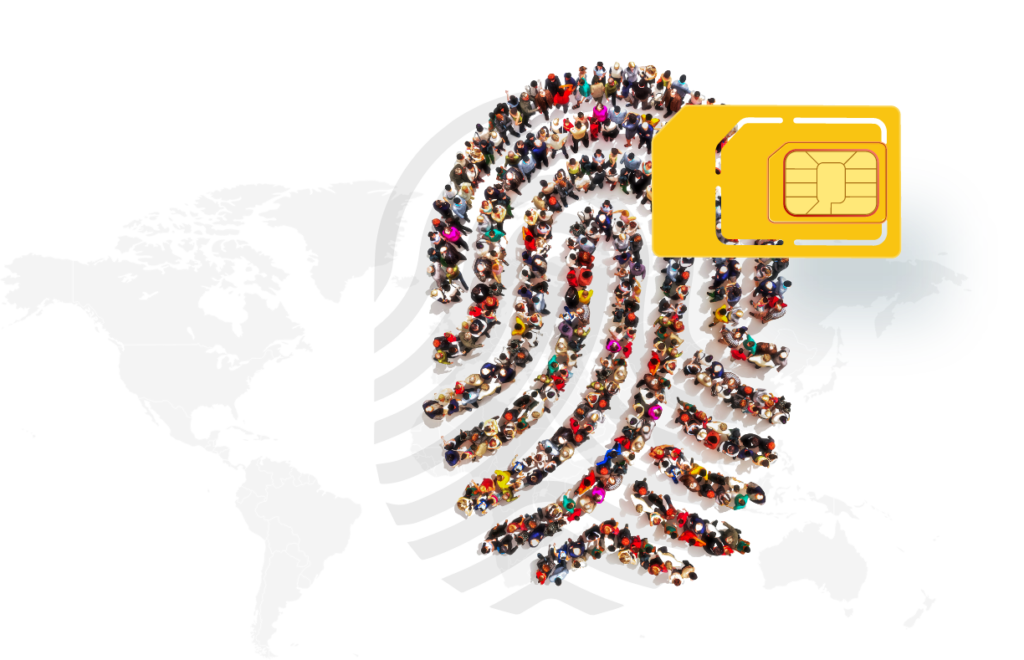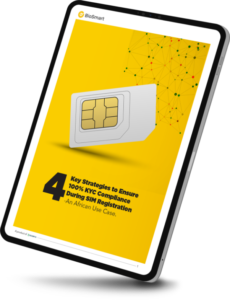The telecommunications space, like every other that rides on human identity can be riddled with identity theft and fraud. The SIM registration process makes it possible for telecoms and law enforcement agencies to identify mobile phone SIM card owners, track criminals who use phones for fraudulent activities, manage incidents such as loss of phone through theft, and ultimately help service providers know their customers better.
Now, with several mandates in different countries, the process involves a high level of verification — matching the mobile phone numbers with personal information of a subscriber including the subscriber’s photograph, name, date of birth, gender, address, details of valid identification documents, etc. all in a bid to prove they are who they say they are. This process, though optimized can still record loopholes.
These loopholes in the registration of mobile users, especially in African countries, is one of the major reasons for the lack of reliable identification document(s), and also why it is difficult for TELCOs to effectively support the government and law enforcement agencies to effectively track phone-related fraudulent activities.
Here are some fictional case studies based on true reports
-
The case of pretentious identities with no link to real humans
Bob was an agent hired by a large telco to capture subscribers a day. For each capture, he got paid N50, and if he met his daily target of 1000 captures or exceeded it, he was to be paid N200 per every 5 extra captures. Bob was as a hustler and so he devised a way to cheat the system by capturing filling out fake identities with the intent to pad his capture number. The system was so porous that he could go as far as capturing still pictures from magazines or even live animals and tying them to a particular identity. He met his cut every time and got his incentive. Years along the line, a crime is committed using one of the fake registered SIM Cards, with no link to Bob. Who is the culprit? Mr John Doe registered with the picture of Samuel L. Jackson.
-
The case of pre-registered SIM cards and the notorious swindlers
Remi and Mike were both notorious swindlers in the business of conning people out of their monies by using the famous strategy of calling and pretending to be anyone important – like an account manager from a bank in need of the customer’s full bank details, a distant estranged family member nosing for private information, or even a businessman with a profitable deal that will require a small deposit. This they do without leaving bread crumbs. How? They have met with an agent like Bob and purchased a bulk of pre-registered SIM cards (sold at a padded cost of course). With this, they are able to remain anonymous as the numbers are not tied to any real identity.
-
The case of compromised Integrity of captured data
A prominent man was kidnapped one day on his way from his hometown. The kidnappers kept constant communication with the family over the phone, making demands and threats. They were convinced they had done it right by hiding their number so it displays as ‘Private Number’ when they called. However, when the family involved the police and they, in turn, involved the network providers, the network provider was able to conveniently bypass their security system to see whose identity the SIM card was tied to. One big problem though, the data was useless — The captured image was unrecognizable, the fingerprints captured were mismatched and were not up to NFIQ standard, the text entry (full name and address) were inputted incoherently. That feat proved to be a wasted effort.
-
The case of inconclusive biometric capture of handicapped individuals
A one-handed man walked into a roadside telecommunications service centre to re-register his SIM card, since it was said to have elapsed its registration period. Immediately, the workers all knew they were in for a long day. The registration process was hectic, long, and unfruitful as the process could not be completed without fingerprint capture. In the end, he was referred to the headquarters to file a complaint. This man feeling cheated was forced to seek the backdoor alternative to re-register his SIM.
What is the solution to issues like these?
<Learn more>
Free eBook: 4 Key Strategies to Ensure 100% KYC Compliance During SIM Registration – An African Use Case.
This eBook will elaborate on real-life crisis faced by major telecommunications companies in Africa and the 4 ultimate key strategies they applied that still serve as long-lasting solutions today.
<Download eBook>









